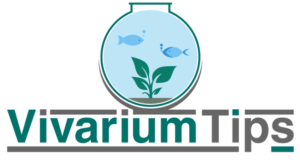When you stumbled upon ferns falling into your fish pond or you’re planning to add them together, you might be asking yourself:
“Are ferns poisonous to fish?”
For common ferns, it’s not poisonous in the beginning. Once the plant begins to rot, then it can become poisonous to fish.
When we decide to own a pet, we choose to take them out of their natural habitat into one we make for them at our homes and shops.
While making a home for hamsters and birds may be easy, it requires some specific knowledge about the habitat of marine life when you decide to make an at-home habitat for your fish.
Fish require a particular habitat and specific living conditions for them to survive. If their habitat levels go out of place just a little, it can easily affect their health.

So, if you have some ferns growing alongside your pond or you have a fern plant standing next to your fishbowl, you may have wondered if it is affecting the living conditions of your fish.
Well, it is probably affecting them a lot. Maybe ferns technically aren’t poisonous, but they encourage indirect harm for the fish and their living environment.
What Are Ferns?
Plants are one of the few living things on earth that are very hard to identify and separate one from one another.
However, ferns are among the most common types of plants that you will often find growing near moisture and warmth.
Ferns are leaf-like plants that do not have flowers. Instead, they populate themselves by spreading their tiny minuscule spores in the air or water.
You will most likely find them growing stealthily near places that have stagnant water.
Why Are They Harmful To Fish?
Ferns can be very deceiving. They will cause you to gloss over them when you are looking for the reason for your fish not surviving. Due to their unique reproduction process of spreading their spores into the water, these spores can be a big reason for polluting the water.
These spores are naturally designed to float on the surface of the water. As a result, they will not drown but instead form a muddy like netting on the surface.
When moist enough, this netting will become hefty and cover the surface of the pond. The fish won’t have any fresh air to breathe or enough sunlight to survive. Hence, they can suffocate and die very easily.
Additionally, all the spores collecting will cause the natural pH level of the water to change and shift from what your fish need to survive. They will most likely decompose sitting on the surface.
As a result, they pollute the water by the chemical reactions happening because of the decaying process. Your fish will most likely be in danger of either dying through suffocation or due to the acidic levels in the water.
Either way, ferns can be very harmful to fish.
How To Prevent Ferns From Harming Fish
Now that we have established how exactly ferns can harm your fish, we now have to understand how to prevent them from harming the fish. The most basic and straightforward way would be just to uproot the fern plant from the ground.
That way, it won’t be a cause of pollution anymore. However, if you are someone who cannot stand to destroy plants, there are other methods as well.
You can buy catch netting and install it on the surface of your pond or pool. This will prevent any outside dirt, pollution, or leaves from getting inside the pool.
The mesh is designed to even work against the minute structure of the fern spores.
Are Ferns Poisonous To Fish: FAQ
You can find questions related to ferns and fish below. If you can’t find the question you’re searching for, comment below and I’ll answer it right when I’m back online!
What plants are toxic to fish?
There are plants that can be dangerous when they’re around fish ponds. According to a reputable fish website, Oaktree, Maple tree, Poplar tree, Rhodendron, Oleander, and Yew can be a hazard to your ecosystem.
Can plants kill fish?
Even if you’re dealing with the safest plants, they can cause harm to your fish when the plant begins to rot. There are also plants that aren’t meant to be together with the aquatic creatures in your tank. For safe plants, you’ll still have to keep an eye out to ensure that your water isn’t contaminated.
Can you put any plant in a fish tank?
Since this question is common, the appropriate answer is no. If you don’t know what plant you’re adding to your tank, please do additional research before placing it with your fish. Not every plant can be placed inside of a fish tank. If you’re looking for the right plants, try to look at terrestrial plants.
Are elephant ear plants poisonous to fish?
According to pondinformer.com, all parts of the elephant ear plant can be toxic and harmful to your fish tank. Not only your fish but this plant can cause harm to humans and countless other species of animals as well.
Can too many pond plants kill fish?
Yes, too many pond plants can cause harm to species of fish due to rotting plants, which can cause more contamination to the water. While some plants are beneficial, keep in mind that issues will eventually arise if not taken care of properly.
From VivariumTips,
It is very easy to reenact a habitat for your fish to swim in and live happily. However, it’s challenging to keep natural dangers from destroying it.
Ferns are one of many hazards that may seem very innocent at first but can very quickly creep up on you and become the cause of your fish’s deteriorating health or death.
When you have a pond, beware of things like ferns and different natural dangers from ruining the serenity of it.
For other articles related to fish, you might want to check out these articles:

